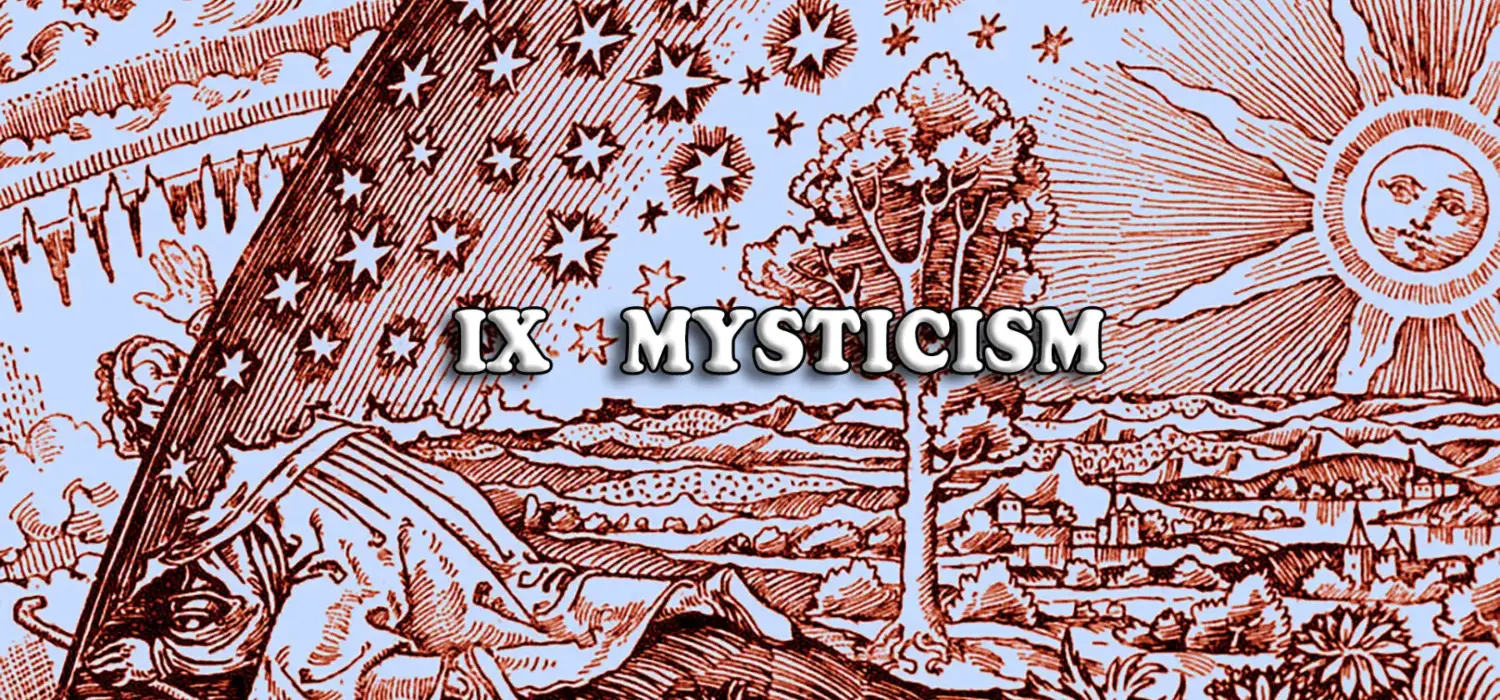
Mysticism, Analogy, and Metaphor IX 1
Sacred Speech Masterclass episode IX
part 1 of 5 parts
hosted by Baba Rampuri
![]()
Mysticism, Analogy, & Metaphor
Mysticism is one of these words whose meaning has changed a great deal over the centuries and now has become so personalized that it has become almost a total abstraction. We explore what is analogy and metaphor in the context of sacred speech.
![]()

![]()
We live in a consumer society. We’re bombarded with marketing, non-stop whether it is marketing to buy something that is going to make you happier, make your work more efficient, keeping up with the technology or the trends, or it could be a political idea, what you must vote for, what you must support. It could be a larger political idea dealing with human dignity, human rights, human justice and so forth. But, in any case, you are, we are, continuously bombarded with marketing and the marketing asks you to make a choice.
We have to shop among ideas, and among things, and you make a choice. I’m trying to avoid that kind of thing in this conversation.
I am not offering a new idea, as it were, or a product, or even a system, really, of something to buy into. There is nothing for sale here. I want to be very clear about that. We’re going for a ride, we’re going for a trip, we’re looking at some scenery that I think quite wonderful and rare that a lot of scenery you have not seen before and it’s in an exotic, esoteric, as it were, situation. So I am not asking you to either believe or follow a particular idea or ideology, nor am I asking you to make any moral judgments on ideas or cultures or time periods.
I find that very often the conversation tends to go in these areas, where we are judging or even pre-judging ideas rather than analyzing or evaluating the scenery– we’re deciding if things are good or bad, better or worse.
This is not where I am going right now with this conversation. I want to, as I have used the expression before, lay things on the table, and, in fact, sometimes even be radical about laying things on the table.
For example, in the comment there was, we diverged in some way, one of the comments about democracy. My interest here in talking about democracy for example, would not be to evaluate its merits or demerits. It would not be to make a moral judgment, and say ‘oh it’s good or it’s bad.’ What strikes me is that it is assumed in our current discourse that it’s simply a “pure good thing,” in fact, something not to even really question. I am not questioning it. I am questioning the assumption that we bring in there, because this assumption resembles other kinds of assumptions that we bring into much more sublime areas, much more esoteric areas and areas that even go beyond our own culture.
So I want to be clear that we are not evaluating things in moral terms. We are not saying it was better before or it’s better now or that evolution is good, or it’s bad or it’s real or it’s not real. We want to know how we think about these things and how we speak about these things and especially since this conversation is not sort of a general conversation.
This is basically informed by our interest in Indian culture and especially esoteric Indian culture. We want to make sure that we are not just looking at ourselves in the mirror – that we are not representing this culture that we are trying to understand in an autobiographical manner.
This is why I am questioning the general assumptions that we make about so many things. One of the areas that continues to pop up in our conversations over time is the relationship between science and mysticism. I think we should be using the word, “mysticism,” as Kailash brought up in his comments, and we should talk a little bit about this. Why, because mysticism is one of these words whose meaning has changed a great deal over the centuries and now has become so sort of personalized that it has become almost a total abstraction.